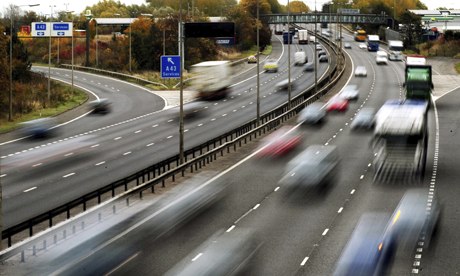Car insurance premiums are too high, with the way no-fault claims are settled and contracts between insurers and price comparison sites among the issues driving up costs for consumers, the competition watchdog has said.
The Competition Commission's investigation of the £11bn motor insurance market found it was not working well for motorists . It said too many drivers were footing the bill for unnecessary costs incurred during the claims process following an accident, and that this is adding between £150m and £200m a year to motorists' premiums.
These costs are initially borne by the insurers of at-fault drivers, but they feed through into increased insurance costs for all drivers.
The watchdog is also concerned about the relationship between price comparison websites and insurers, saying that when comparison sites demand exclusive deals this can reduce competition and push up premiums.
Alasdair Smith, who is leading the investigation, said: "We are now considering a range of possible measures – some of them far-reaching reforms – to ensure that the market better serves the interests of customers."
Smith said that in most cases the party managing the accident claim – typically the non-fault insurer or intermediary – was not the party liable to pay the costs of the claim.
"There is insufficient incentive for insurers to keep costs down, even though they are themselves on the receiving end of the problem," he said.
The commission is considering whether to make a driver's own insurer responsible for providing a replacement vehicle or to give at-fault insurers greater opportunity to take control over managing claims.
There may also be caps on the cost of providing a replacement vehicle and on repair costs, as well as compulsory audits of repair quality after the watchdog found that following an accident too many repairs were not completed to the required standard.
Other provisional findings identify problems with the sale of add-on products, as it is hard for consumers to find the best-value products.
It said motorists have limited information about such insurance products, while insurers have point-of-sale advantage.
The Association of British Insurers (ABI) said it hoped the commission's work would lead to lower premiums for customers.
Its head of motor insurance, James Dalton, said: "As an industry we remain absolutely committed to improving the car insurance market for hard-pressed motorists.
"We asked for the commission's inquiry into the market to help insurers continue the work we are already undertaking to remove costs that unnecessarily drive up car insurance premiums. So today's possible remedies are a further step along the road to getting a market that enables insurers to deliver fully for consumers."
He added: "We look forward to continuing to engage with the Competition Commission as it carries forward its work and we hope this will lead to further improvements in the market and lower premiums for customers."
Original Article
Source: theguardian.com/
Author: PA
The Competition Commission's investigation of the £11bn motor insurance market found it was not working well for motorists . It said too many drivers were footing the bill for unnecessary costs incurred during the claims process following an accident, and that this is adding between £150m and £200m a year to motorists' premiums.
These costs are initially borne by the insurers of at-fault drivers, but they feed through into increased insurance costs for all drivers.
The watchdog is also concerned about the relationship between price comparison websites and insurers, saying that when comparison sites demand exclusive deals this can reduce competition and push up premiums.
Alasdair Smith, who is leading the investigation, said: "We are now considering a range of possible measures – some of them far-reaching reforms – to ensure that the market better serves the interests of customers."
Smith said that in most cases the party managing the accident claim – typically the non-fault insurer or intermediary – was not the party liable to pay the costs of the claim.
"There is insufficient incentive for insurers to keep costs down, even though they are themselves on the receiving end of the problem," he said.
The commission is considering whether to make a driver's own insurer responsible for providing a replacement vehicle or to give at-fault insurers greater opportunity to take control over managing claims.
There may also be caps on the cost of providing a replacement vehicle and on repair costs, as well as compulsory audits of repair quality after the watchdog found that following an accident too many repairs were not completed to the required standard.
Other provisional findings identify problems with the sale of add-on products, as it is hard for consumers to find the best-value products.
It said motorists have limited information about such insurance products, while insurers have point-of-sale advantage.
The Association of British Insurers (ABI) said it hoped the commission's work would lead to lower premiums for customers.
Its head of motor insurance, James Dalton, said: "As an industry we remain absolutely committed to improving the car insurance market for hard-pressed motorists.
"We asked for the commission's inquiry into the market to help insurers continue the work we are already undertaking to remove costs that unnecessarily drive up car insurance premiums. So today's possible remedies are a further step along the road to getting a market that enables insurers to deliver fully for consumers."
He added: "We look forward to continuing to engage with the Competition Commission as it carries forward its work and we hope this will lead to further improvements in the market and lower premiums for customers."
Source: theguardian.com/
Author: PA

No comments:
Post a Comment